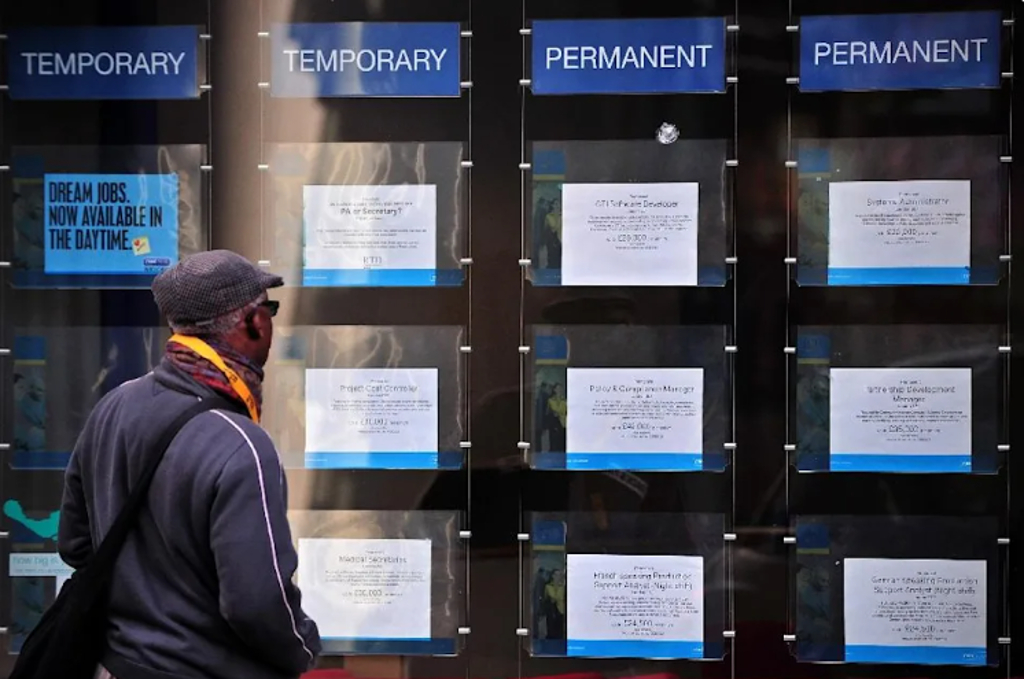Unemployment in Britain has fallen again, despite the end of a government scheme to keep millions of private-sector workers in their roles during the coronavirus pandemic, official data showed Tuesday.
The jobless rate — which measures the number of people out of work as a proportion of the working population as a whole — slipped to 4.2 percent in the three months to the end of October, the Office for National Statistics (ONS) said in a statement.
That compared with a rate of 4.3 percent in the three months to the end of September.
Nevertheless, the rate was still 0.2 percentage point higher than the level before the Covid crisis struck.
The government ended its costly scheme to furlough workers in September.
Meanwhile, the number of UK workers on payrolls rose by 0.9 percent between October and November to 29.4 million, the ONS calculated.
“With still no sign of the end of the furlough scheme hitting the number of jobs, the total of employees on payroll continued to grow strongly in November, although it could include people recently made redundant but still working out their notice,” said ONS economic statistics director Darren Morgan.
“The number on payroll is now above pre-pandemic levels right across the country.”
The ONS said that job vacancies in the three months to the end of November hit a new all-time high at 1.22 million.
“While job vacancies continue at record levels, the number is not growing as fast as it did earlier this year,” Morgan cautioned.
The news comes amid ongoing fears over the impact of the infectious Omicron coronavirus variant which surfaced in late November.
The data also come ahead of the Bank of England’s latest interest rate decision on Thursday.
Britain has tightened virus restrictions in England as Omicron cases surge, including guidance to work from home and mandatory Covid passes.
Prime Minister Boris Johnson has warned of a looming “tidal wave” of Omicron, and brought forward a target to give over-18s a booster jab by one month to the end of December.
The government also recently rolled out new travel curbs to try and prevent transmission of the variant.
The BoE had previously been expected to hike record-low interest rates to combat surging inflation — but Omicron has darkened the outlook.
“Today’s labor market report probably would have been strong enough to convince the (BoE) to raise bank rate at this week’s meeting, if Omicron had not emerged,” noted Pantheon Macro economist Samuel Tombs.


